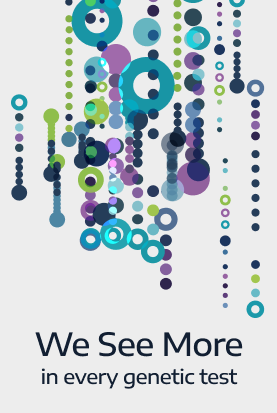FGF14 (Spinocerebellar Ataxia 27B) Repeat Expansion Testing

Description
Pathogenic GAA repeat expansions in the FGF14 gene have been associated with autosomal dominant spinocerebellar ataxia 27B (SCA27B), a late onset ataxia which is considered to be one of the most common SCAs, particularly in the French-Canadian population, though it is also found in other populations.
Pathogenicity is dependent upon GAA repeat length according to the following ranges 1-4:
Normal Alleles | Mutable Normal Alleles | Intermediate/Uncertain Alleles | Reduced Penetrance Alleles | Full Penetrance Alleles |
179 or fewer* | - | 180-249 uninterrupted | 250-300 uninterrupted | 301 or more uninterrupted |
*Larger alleles with non-GAA interruptions are also considered normal and stable.
Note: As SCA27B is typically adult onset, FGF14 repeat expansions are not reported in minors in comprehensive analyses.
Tests That Analyze FGF14 Repeats
- Genomic Unity® 2.0
- Genomic Unity® Whole Genome Analysis
- Genomic Unity® Lightning Genome Analysis – Standard
- Genomic Unity® Exome Plus Analysis
- Genomic Unity® Exome Analysis
- Genomic Unity® Movement Disorders Analysis
- Genomic Unity® Comprehensive Ataxia Analysis
- Genomic Unity® Ataxia Repeat Expansion Analysis
